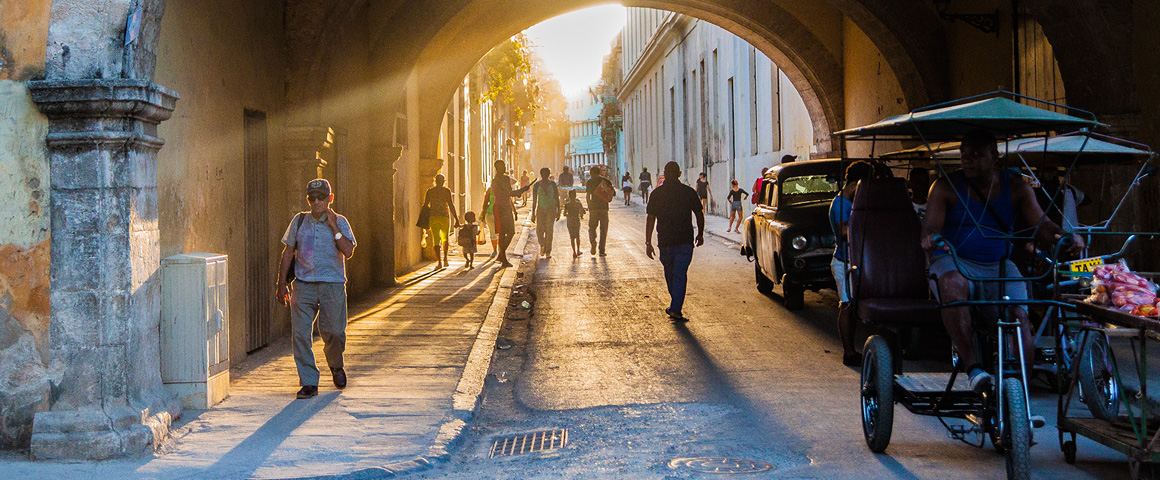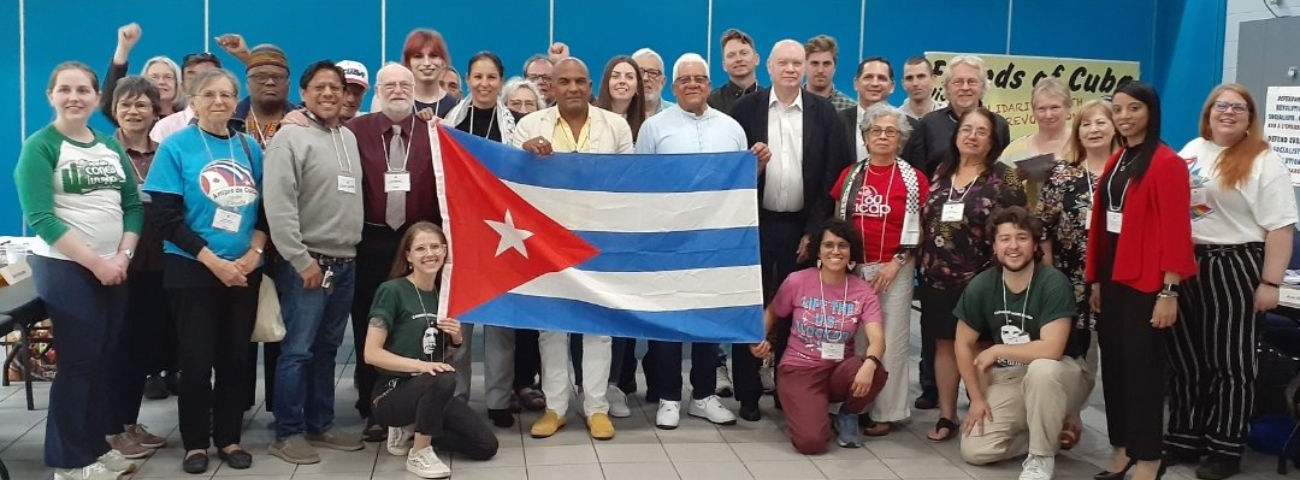It is still frequent to come across people who having heard about the re-establishment of diplomatic relations between the U.S. and Cuba, believe that now it’s all back to normal and that the blockade of Cuba is over. Although the initial announcements of the reopening of relations by Presidents Raúl Castro and Barack Obama were made on December 17, 2014, the blockade is still in full force.
In fact, Cuban Foreign Minister Bruno Rodríguez stated at a Sept. 9 press conference in Havana that the U.S. blockade on the island nation has cost it $4.7 billion over the last year, and $753.7 billion over the last six decades. [1] But the blockade is not just a matter of monetary value; it is a human rights issue that Cubans call immoral, in violation of all ethical principles, and causing human harm.
Here are some recent examples of the enforcement of the blockade by the U.S. Treasury Department’s Office of Foreign Assets Control (OFAC) for transactions involving Cuba:
- On March 12, 2015 the German financial institution Commerzbank was fined about 1.7 million dollars.
- March 25, the U.S. company PayPal was fined more than $7.6 million.
- In November 2015, four months after reopening respective embassies, OFAC imposed a fine of $1.1 billion on the French bank Crédit Agricole.
- On January 20, 2016, the U.S. design company WATG Holdings Inc. was fined $140,400.
- In February, the French geological company CGG Service S.A. was fined $614,250.
- At the end of February, the Treasury Department fined the U.S. company Halliburton $304,706.
Most damaging of course are transactions involving two strategic sectors: 1) food production and imports; and 2) manufacturing of pharmaceutical and biological products for the healthcare system.
Other impacts of the blockade involve difficulty by Cuban entities to carry out normal services. This is the case of denial by the Spanish courier and postal services TNT to mail an international parcel by the Cuban Embassy in Madrid. Reason given? “There is a USA embargo.” How much these incidents are the result of stupidity, ignorance or deliberate harassment against Cuba, we will never know.
Paradoxically, Cuba-U.S. conversations continue. On September 12, the first Bilateral Economic Dialogue took place in Washington, to discuss economic, commercial and financial issues of mutual interest. While these contacts are necessary, likely they will not translate into any substantial advantage for the Cuban economy. The Cuban newspaper Granma reports that despite the “authorization for Cuba to use the U.S. dollar in international transactions with third countries and in those permitted between Cuban and U.S. institutions, to date, this change has not been implemented. International banks continue to refuse to work with Cuba, given the U.S. sanctions that remain in place. Cuba has yet to make a single payment or deposit in U.S. dollars.” [2]
In another apparent paradox, on September 14 President Barak Obama reauthorized the Trading with the Enemy Act (TWEA). Established in 1917, in the middle of World War One, this Act has been used as the basis for the Helms-Burton Act that codifies the U.S. blockade. The TWEA is now used only against Cuba. What indicates the confusion of U.S. government legislation is the fact that by signing this Act, Obama actually retains some authority to soften aspects of the blockade. Despite the intention of the Act, Obama has not used that authority to a great extent.
Many supporters internationally have been in solidarity with Cuba against this absurd U.S. blockade. They include personalities like the Head of the U.S. Council of Churches and Pope Francis.
The report, titled “Necessity to End the Economic, Commercial and Financial Blockade Imposed by the United States”, will be presented on October 26 at the UN General Assembly. [3] Similar reports have been introduced and voted on at the U.N. since 1992. Last year the General Assembly voted 191-2 to condemn the U.S. blockade on Cuba, with only the U.S. and Israel opposed. Yet another paradox when the U.S. votes for the continuation of the almost 60 years old blockade at the U.N. while Obama speaks of “leaving the past behind.”
With the apparent shift towards pro-U.S. right-wing governments in Latin America, it will be interesting to see who the “new” outliers will be, if any.
Cuba will continue to vigorously demand lifting the blockade and returning the Guantanamo territory illegally occupied by the U.S. military base as the initial steps towards normalization of relations. In a recent talk in Ottawa, Cuban Ambassador to Canada, Julio Garmendía Peña, emphasized the importance of the international solidarity movement and thanked the Canadian friendship associations that have consistently picketed in front of the U.S. consulates in several cities demanding the lifting of the blockade. [4]
In the meantime Cuba and the Cubans are determined to continue the struggle to maintain the well-earned sovereignty and independence gained thanks to its socialist values.
[2] http://en.granma.cu/cuba/2016-09-16/the-us-blockade-of-cuba-remains-in-full-force
[3] Full text in English can be downloaded from: http://www.cubavsbloqueo.cu/es




